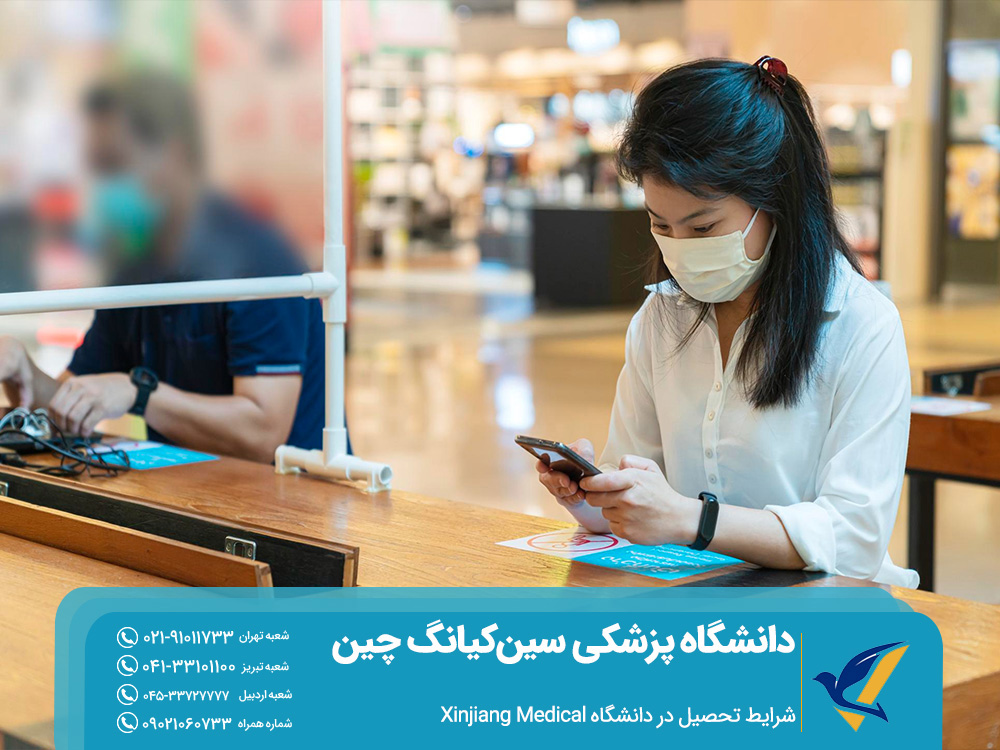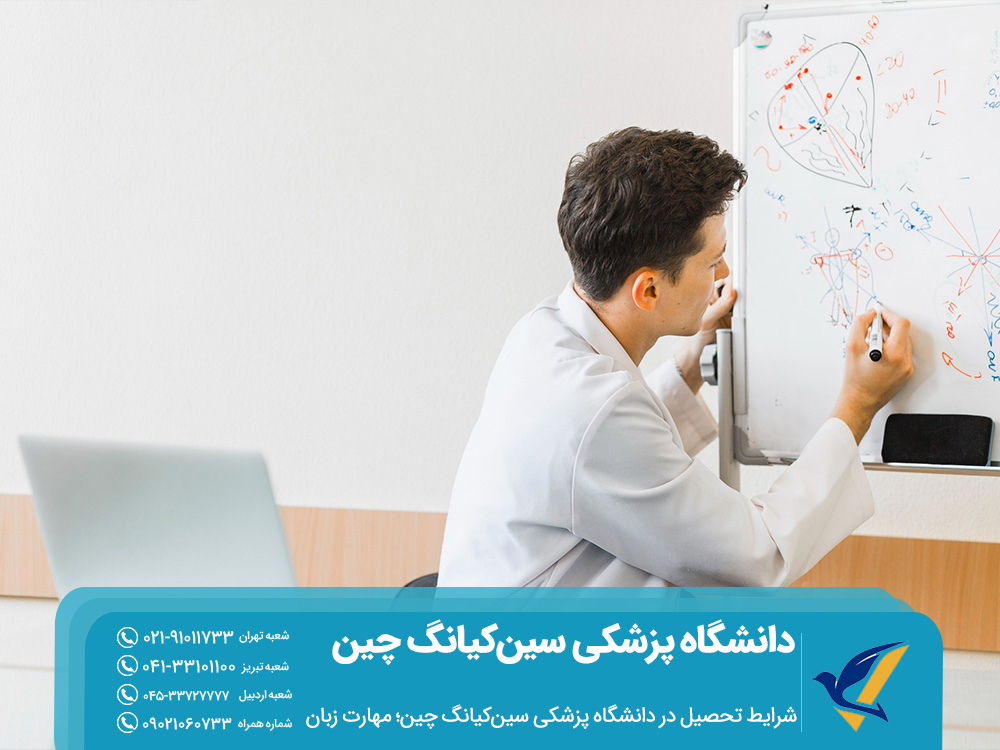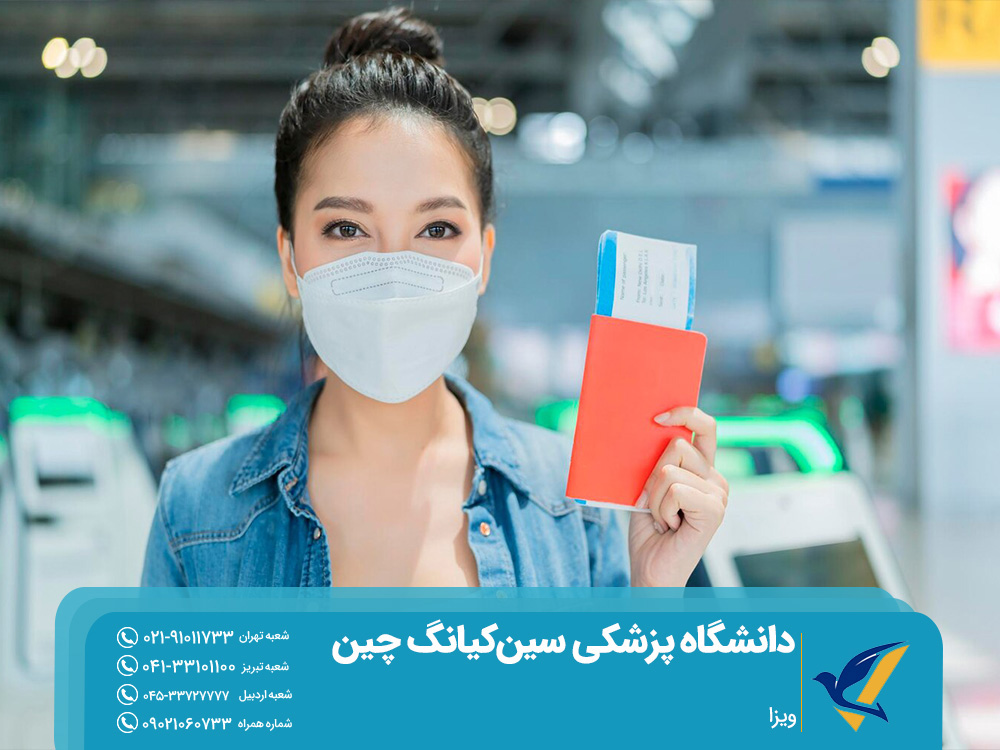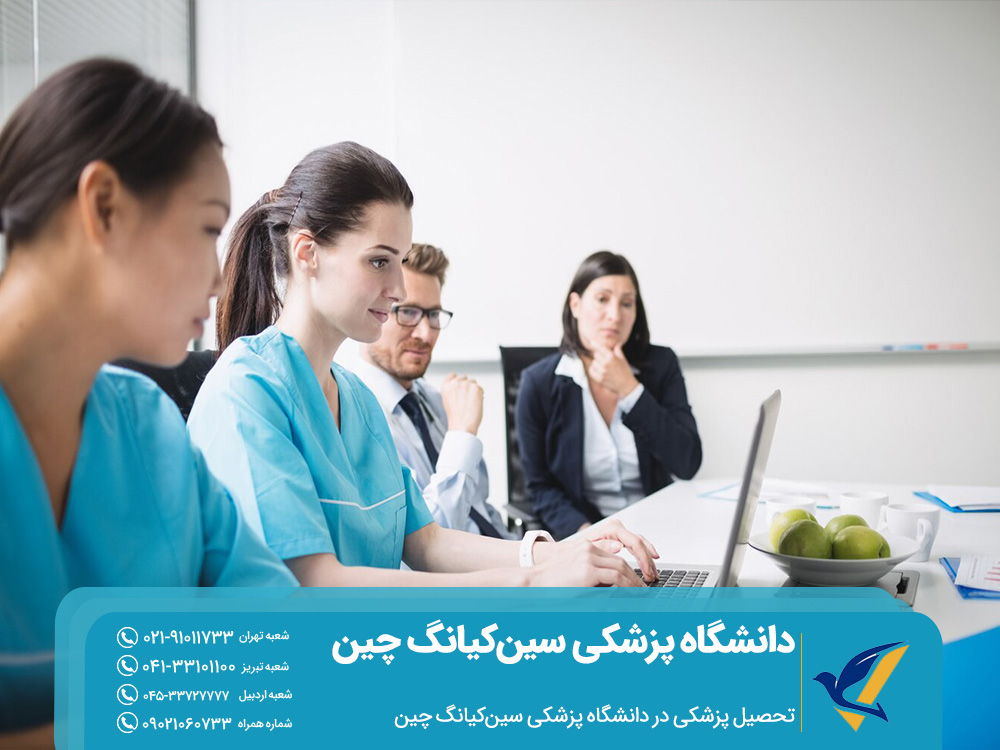ترجمه حرفهای و روان متن شما به زبان انگلیسی، بهگونهای که طبیعی و انسانی به نظر برسد:
Xinjiang Medical University: A Leading Medical Institution in China
Xinjiang Medical University (XJMU) is recognized as a prestigious higher education institution with a remarkable history and a central role in medical education and healthcare training for international students. Established in 1956, the university has produced many skilled and renowned medical professionals.
Today, Xinjiang Medical University is known as a comprehensive medical institution that uniquely combines modern medicine with traditional Chinese medicine and innovative healthcare practices to serve the medical system. One of the key reasons it attracts international students is its affordability, especially compared to universities in the United States. XJMU offers a wide range of academic programs across various levels of study. In this article from Elm Vira, we take a closer look at the scholarship opportunities available at Xinjiang Medical University.
About Xinjiang Medical University
Located in the Xinjiang Uyghur Autonomous Region of China, Xinjiang Medical University (XJMU) is renowned for its comprehensive education in medicine and healthcare. It was founded in 1956 during China’s First Five-Year Plan, with support from the former Soviet Union, initially as Xinjiang Medical College. In 1998, following a merger with the College of Traditional Chinese Medicine, it officially became Xinjiang Medical University.
XJMU integrates traditional Chinese medicine, Western medicine, and regional healthcare practices, reflecting the university’s rich and diverse cultural background. The university offers 25 undergraduate majors and 17 advanced academic programs across fields such as medicine, management, and linguistics. With over 13,000 students, Xinjiang Medical University stands as one of China’s major and highly respected medical institutions.
With 40 affiliated hospitals, including top-tier clinical centers, the university provides extensive hands-on training and research opportunities. XJMU is deeply committed to innovation and service, playing a vital role in advancing healthcare standards in the region and beyond.

Admission Requirements for Xinjiang Medical University
Xinjiang Medical University is one of the most reputable institutions in China for medical education, offering programs such as MBBS to international students. Known for integrating modern and traditional approaches to medicine, the university has become one of the most popular higher education centers in China. Understanding the eligibility criteria and admission requirements is essential for students looking to study at this affordable and high-quality institution.
The university’s standards ensure that applicants meet academic qualifications, are in good physical health, and comply with China’s educational and immigration regulations. Below is an overview of the admission requirements for Xinjiang Medical University:
1. Age Requirements
Applicants seeking undergraduate admission at Xinjiang Medical University must be between 18 and 25 years old at the time of application. This age range ensures that students are mature enough to handle the demands of a rigorous medical curriculum while still being in the early stages of their academic and professional development. Some flexibility may be granted based on individual circumstances or specific program policies.
2. Academic Requirements
International applicants must have completed secondary education with a 12-year high school diploma. A minimum score of 70% in core science subjects—Physics, Chemistry, and Biology—is recommended for a competitive application. A strong academic record significantly boosts the chances of acceptance. Additionally, submitting a compelling personal statement, an academic résumé and recommendation letters from credible sources can strengthen the application and improve the likelihood of admission to Xinjiang Medical University.

3. Language Proficiency Requirements
Since Xinjiang Medical University offers programs in English, international students must possess adequate English skills to follow the curriculum and communicate effectively with instructors. Although the university does not strictly require standardized English proficiency test scores, having results from exams such as IELTS or TOEFL can significantly enhance an applicant’s chances of admission.
In addition, students are encouraged to have a basic understanding of the Chinese language, as they are required to complete a mandatory Chinese language course during their studies. This prepares them to interact with patients during clinical rotations and enhances both practical training and cultural integration through a bilingual approach.
4. Physical and Mental Health
Applicants must be in good physical and mental health and are required to submit a medical examination certificate from a recognized hospital or physician. This documentation is aligned with China’s visa regulations and university policies, ensuring that students can meet the physical and mental demands of medical education. Furthermore, students must also submit a certificate of no criminal record, demonstrating compliance with China’s legal standards for international students.
5. Application Requirements
To apply for admission, students must fill out the application form on the official website of Xinjiang Medical University and submit all required documents. While specific requirements may vary depending on the program, the general list of required documents includes:
- High school diploma
- Valid passport
- High school transcripts
- Medical certificate
- Personal statement (motivation letter)
- Recommendation letter(s)
- Academic résumé (CV)
- Passport-size photo
- Student visa
- Application fee (800 to 1000 RMB)
6. Financial Requirements
Prospective students must demonstrate sufficient financial resources to cover their tuition and living expenses while studying in China. This proof of funds should reflect the ability to pay for:
- Annual tuition: approximately 30,000 RMB
- Accommodation: between 4,500 to 5,000 RMB per year
- Daily living expenses and miscellaneous costs

7. Student Visa
After receiving the admission letter from Xinjiang Medical University, students must apply for a student visa (X1) at the Chinese Embassy or Consulate in their country. The documents typically required for the Chinese student visa include:
- English language certificate (if available)
- Academic credentials
- Official admission letter from the university
- Medical examination certificate
- Proof of financial support
- And other supporting documents as required
University Ranking & Facilities
Xinjiang Medical University holds a respectable position in both national and international university rankings. These rankings reflect the university’s academic excellence, research output, and alignment with global standards.
According to the CWUR World University Rankings 2024, Xinjiang Medical University is ranked 2206 globally and 666 among Chinese universities. These positions highlight the university’s strong focus on clinical medicine and scientific research.
The university offers outstanding facilities to support high-quality medical education. With a campus area of over 3 million square feet, it features:
- Advanced laboratories
- State-of-the-art biomedical information processing systems
- A well-equipped library
- Over 40 affiliated hospitals for clinical training
- And a newly established modern campus (since 2020), accommodating over 24,000 students
This infrastructure supports Xinjiang Medical University’s mission to provide world-class medical education and hands-on experience.
Tuition and Living Costs at Xinjiang Medical University
Studying medicine at Xinjiang Medical University is considered an affordable pathway for international students, particularly those enrolling in the 6-year MBBS program in English.
1. Tuition Fees
The total tuition cost for the full 6-year MBBS program is approximately 180,000 RMB (about 25,000 USD), which translates to roughly 30,000 RMB (4,200 USD) per year.
This competitive pricing makes Xinjiang Medical University one of the most cost-effective options for pursuing a medical degree in China when compared to universities in Western or European countries.

2. Accommodation Costs
Student dormitories are available on campus and offer modern and affordable housing options. The annual cost for shared rooms typically ranges from 4,500 to 5,000 RMB (approximately 630 to 700 USD), with two students per room. These dormitories are fully equipped to ensure a comfortable and stress-free student life.
For those seeking more privacy, single rooms (subject to availability) are offered at a higher rate of around 27,000 to 30,000 RMB per year.
3. Cost of Living
Living expenses in China for students at Xinjiang Medical University are relatively affordable. Monthly costs for essentials such as food, transportation, and personal items typically range from 800 to 1,200 RMB (about 112 to 168 USD) depending on individual lifestyle.
The university provides halal dining halls with nutritious and budget-friendly meal options for Muslim students, helping them manage food costs efficiently.
Over the full 6-year MBBS program, the total estimated living expenses range between 57,600 to 86,400 RMB (approximately 8,064 to 12,096 USD).
4. Additional Expenses
In addition to tuition and living costs, students should consider some initial and recurring miscellaneous expenses, including:
- Application fee: ~800 RMB (112 USD)
- Annual residence permit: 400–800 RMB (56–112 USD)
- Mandatory health insurance: ~800 RMB (112 USD)
- Textbooks and stationery: ~500 to 1,000 RMB annually (70–140 USD)

5. Total Cost of Study
Considering all expenses, the total estimated cost of studying at Xinjiang Medical University over six years ranges between 272,700 to 331,000 RMB (approximately 6,363 to 7,723 USD).
Students may reduce this financial burden by applying for various scholarship opportunities offered by the university.
Xinjiang Medical University combines affordability with high-quality education, recognized internationally, including by the World Health Organization (WHO).
Scholarships at Xinjiang Medical University
Xinjiang Medical University offers a wide range of scholarships to international students, making it a popular and accessible destination for medical studies. These scholarships aim to attract talented students, ease financial burdens, and promote academic excellence.
1. Chinese Government Scholarship (CSC)
One of the most prestigious options, the CSC Scholarship is a fully funded scholarship awarded to academically outstanding students. It covers:
- Full tuition fees
- On-campus accommodation
- A monthly living allowance of 2,500 RMB
Eligible students must apply between December and April and submit their academic records, health certificates, and recommendation letters through the CSC portal.
2. Xinjiang Uyghur Autonomous Region Government Scholarship
This scholarship is available to students from neighboring countries and primarily supports Master’s and Doctoral programs. It is fully funded and includes:
- Tuition fees
- Accommodation
- A monthly stipend of 1,000 to 1,500 RMB
3. University-Specific Scholarships
Xinjiang Medical University also provides its merit-based scholarships, which may fully or partially cover tuition fees. These internal scholarships reward high-achieving students and vary in terms of coverage and eligibility criteria.

Study Medicine at Xinjiang Medical University, China
Studying medicine in China at Xinjiang Medical University (XJMU) offers international students a unique opportunity to pursue their medical education at one of the most reputable institutions in the country. Since its establishment, XJMU has gained recognition for its MBBS program, which aligns with international standards in medical education.
What sets this program apart is its integration of modern Western medicine with Traditional Chinese Medicine (TCM). The curriculum provides a solid foundation in clinical practice, anatomy, pharmacology, and surgery, alongside insights into regional healthcare approaches.
The program consists of five years of academic and practical training on the university’s modern campus, followed by a one-year internship at one of its 40 affiliated hospitals. With over 13,000 students, XJMU boasts a highly experienced faculty and a strong emphasis on hands-on learning, supported by advanced laboratories and a library housing over one million volumes. The entire MBBS program is taught in English within a culturally rich and diverse environment.
Summary
With a proud history of educating over 50,000 students, Xinjiang Medical University stands out for its commitment to training future healthcare professionals. Its modern infrastructure—including high-tech labs, a vast library, affiliated hospitals, and specialized research and recreational facilities—supports a world-class medical education experience.
Rooted in a mission of innovation, inclusivity, and service to humanity, XJMU continues to shape the future of healthcare in one of the world’s most culturally and geographically diverse regions.
This guide aims to give you a comprehensive overview of the cost of studying medicine at Xinjiang Medical University. If you’re looking for an affordable MBBS program in China, our team at Elm Vira is ready to help you understand the scholarship options and application process.
📞 Contact us today for a free consultation and let Elm Vira be your trusted partner on your journey toward medical education in China.
میانگین امتیازات 5 از 5
Vote count: 1 Vote